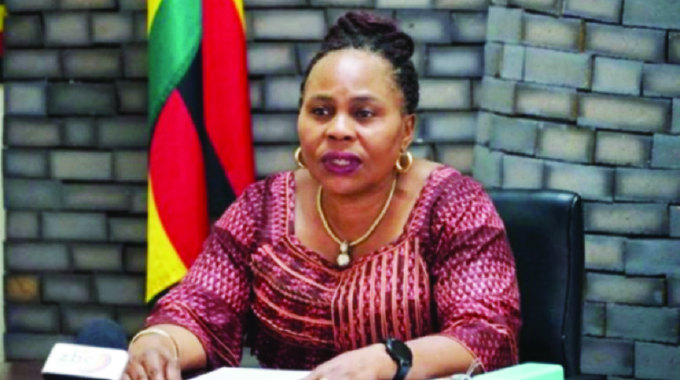Source: Zim scores big in 2021, bullish ahead of 2022 | The Herald
Fungi Kwaramba Political Editor
As the curtain comes down on 2021, the Second Republic led by President Mnangagwa has implemented far-reaching policies that have positively impacted lives of ordinary citizens, something that will be taken to another level in 2022.
In a two-minute video challenge enunciating Government policies, Information Publicity and Broadcasting Services Minister Senator Monica Mutsvangwa said Government is on course to meet Vision 2030 of making Zimbabwe an upper middle income economy through the implementation of people-oriented policies and programmes, which are contained in the National Development Strategy 1 (NDS1).
She said, among other things, the Government has thus far domesticated and stabilised the economy, relieving the masses of high inflation, a tormenting factor during the First Republic. Inflation has dropped by 100 percent to 56 percent in just six months.
Defying constraints such as Covid-19, the country’s economy grew by 7.8 percent, the highest in the region as corroborated by several international institutions.
Because of the economic stability, Senator Mutsvangwa said both local and foreign investors are now bullish and making a beeline to invest in the country.
Singling out the critical Diaspora community that has heeded President Mnangagwa’s call to invest in the country, Minister Mutsvangwa said 2021 saw Zimbabweans based outside the country making huge investments back home.
“Our Diaspora community is now pledging increased confidence in the national economic management by investing assets back at home,” she said.
This is all part of the engagement and re-engagement drive that is being pursued by the Second Republic as part of a cocktail of ingredients key to achieving Vision 2030, and which is not only limited to friendly nations, but also reaches out to formerly hostile countries.
The engagement and re-engagement drive has resulted in Western countries accepting the Second Republic as is demonstrated by the bilateral dialogue that has since been established between Zimbabwe and the European Union, and most recently when President Mnangagwa was invited to the Cop26 in Glasgow, becoming the first Zimbabwean leader to visit the United Kingdom since the turn of the millennium.
“The pariah state tag has now given way to wholesome, all-round diplomatic and economic friendships,” the minister said.
Pre-Second Republic, Zimbabwe used to record annual budget deficits but under the Second Republic, fortunes have turned around for the better with the country now recording surpluses.
“The surpluses are now funding major construction projects including roads, bridges, housing, providing public transport and social security, including food aid and cash allowances to vulnerable groups.
“This agricultural season, more than 2 million people are set to benefit from the Pfumvudza/Intwasa programme which will guarantee food security.”
Fulfilling a century-old dream, President Mnangagwa in February this year commissioned the Gwayi-Shangani Dam project, which will come with a 245km water pipeline to Bulawayo.
The Gwayi-Shangani Dam project is part of the National Matabeleland Zambezi Water Project, a scheme that was first mooted in 1912. While successive Governments have failed to pursue it to its finality, President Mnangagwa stepped in providing necessary fiscal support and the requisite political will to see the project through.
Through initiatives like these, there is an industrial hum in the country owing to the ongoing fast-paced industrialisation and modernisation which are pivoted by the expansion of power supply sources such as the Hwange Power Station and other new power projects that will power the country’s capital projects including the multi-billion Manhize Steel Plant, set to become the biggest in the southern African region.
The project, another Second Republic flagship investment programme, is set to change the country’s economy in a major way.
Through business-tailored policies Zimbabwe is now ranked among the top 20 business reformers in Africa and is the third in budget transparency.
With the economy stabilising, and also due to its engagement policies Zimbabwe has largely been able to contain the Covid-19 pandemic, even confounding critics through sheer pragmatism and resourcefulness.
As a result of, and because of the policies, 7 million Zimbabweans have so far received the Covid-19 vaccine, either the first or second dose while in the whole the Government has secured more than 12 million vaccines, enough to achieve herd immunity against the global pestilence.
Minister Mutsvangwa, whose ministry has made history by licensing 6 commercial television stations and 21 community radio stations, added that for Zimbabwe, the future can only be brighter.
Newer Post
Brain drain: Gvt seeks recompense through UN Older Post
Currency reforms urgently needed 
COMMENTS